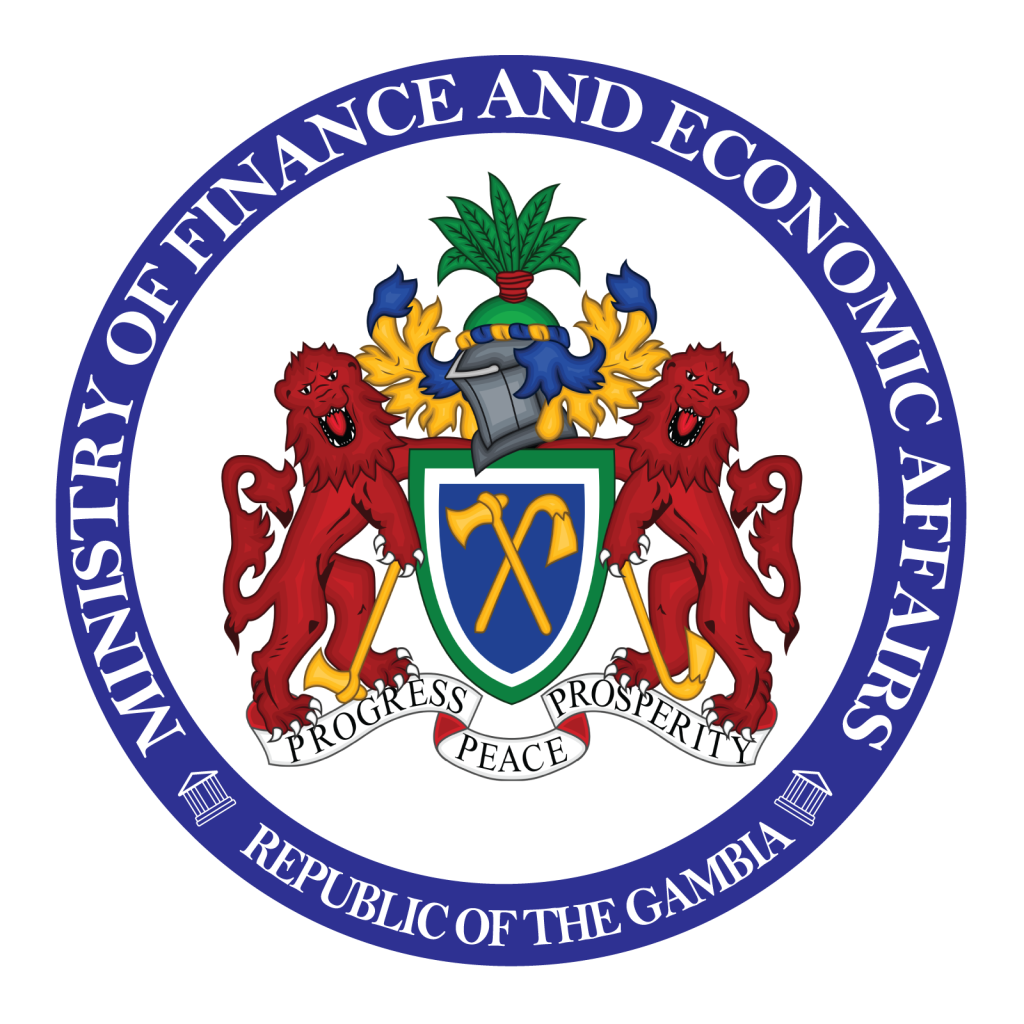Directorate of Internal Audit
Internal Audit aims to provide a high quality and effective audit service that is responsive to the needs of the GOTG Ministries, Departments and Agencies (MDAs).
Internal Audit aims to add value to the systems of GOTG by identifying risks, make recommendations for improvement and offer advice and assistance in order to ensure effectivity of the systems of internal control.
Internal Audit aims to assist GOTG mitigate risk; ensure effective control and governance procedures.
Internal Audit aims to operate in accordance with the standards contained in the International Professional Practices Framework of the Institute of Internal Auditors and in compliance with the Public Finance Act, 2014.
The role of the Internal Audit Directorate is to determine whether the respective Government Ministries, Agencies or Departments’ risk management, control and governance processes, as designed and operated by management, are adequate and functioning in a manner to confirm that;
- Risks are appropriately identified and managed;
- Significant financial, managerial and operating information is accurate, reliable and timely;
- Employees’ actions are in line with policies, procedures and the applicable laws and regulations of the Government of the Gambia (GOTG);
- Resources are acquired economically, used efficiently, and protected adequately to achieve the intended objectives;
- Programs, plans and objectives are achieved;
- Staff adhere to established ethics and values system; and
- Quality and continuous improvement are fostered in the MDAs’ control processes.
Opportunities for improving management control and performance identified during audits will be communicated to the appropriate level of management for prompt action.
In line with the mission statement stated above, the key objectives of the Directorate of Internal Audit are;
- Set up a strong and effective Public Sector(Government, and quasi-Government Internal Audit function;
- Formulate and disseminate internal audit regulators, policies, guidelines etc;
- Ensure capacity building for Internal Auditors;
- Provide guidance and supervise Internal Auditors in MDAs;
- Initiate preventive and corrective measures to improve quality of Public Financial Management;
- Conduct audit assignments in MDAs to assess whether risks are appropriately identified and managed;
- Provide consulting services to management on internal controls, risk management and corporate governance;
- Monitor implementation of the audit recommendations and prepare quarterly reports for the audit committee;
- Coordinate internal audit work with the National Audit Office.
The Government of The Gambia (GOTG), since 2007, has embarked on several financial management reforms to improve financial and economic governance programs within Government in order to foster transparency and accountability and enhance operational efficiency in public sector financial management. Key among these reforms is establishment of Internal Audit Directorate (IAD) and The Internal Audit Committee. The Internal Audit Directorate in Ministry of Finance in its current form was established in 2004 after the enactment of the GBMAA.
These steps build on the improvements accomplished in strengthening internal audit in Gambia through capacity building initiatives undertaken since its inception in 2010. Further, Crucial lessons have been learnt in implementing the previous 2013-2015 strategic plan, PAGE, reviews done on by PEFA in 2010 & 2014, internal consultations, consultations with various stakeholders, vision, mission and SWOT analysis done. Having this, a different law needs to be lobbied for the Internal Audit Directorate in order for it to deliver its mandate effectively and independently.
These strategies lay a clear roadmap to building a sustainable internal audit function that will be a change agent in public financial management and has the capacity and momentum to spearhead internal audit capacity building efforts while reducing reliance on technical assistance from consultants.
The areas of strategic focus identified were mapped into the following six broad pillars that cover all the aspects public sector internal audit practice.
- Regulation and Coordination – the establishment, development and coordination of internal audit function in government to ensure it contributes to an effective and efficient public financial management system
- Organizational structure and internal audit responsibilities – the way that Internal Audit is structured and supported by the organisation to allow it to deliver its terms of reference
- Human Resources and Leadership – the availability (both in terms of quality and quantity) and management of audit resources to allow internal audit to deliver its remit
- Audit process, tools and techniques – the processes, tools and techniques in place that ensure the efficient and effective completion of audit work
- Communication and Reporting – the way that the function interacts with the organization and third parties to ensure that the results of the audit work are fully understood and appropriately acted upon;
- Performance Management and accountability – the procedures in place to ensure that audit work is of a consistently high quality and that internal audit continuously monitors (and reports) its performance to ensure and evidence that it meets its set objectives.
- Roll out of Internal Audit function to MDAs
- Building of the capacity of the Directorate which includes hiring Professional Accountants and professionally certified Internal Auditors.
- Drafting of a new strategic plan
Downloads [3]
Internal Audit aims to provide a high quality and effective audit service that is responsive to the needs of the GOTG Ministries, Departments and Agencies (MDAs).
Internal Audit aims to add value to the systems of GOTG by identifying risks, make recommendations for improvement and offer advice and assistance in order to ensure effectivity of the systems of internal control.
Internal Audit aims to assist GOTG mitigate risk; ensure effective control and governance procedures.
Internal Audit aims to operate in accordance with the standards contained in the International Professional Practices Framework of the Institute of Internal Auditors and in compliance with the Public Finance Act, 2014.
The role of the Internal Audit Directorate is to determine whether the respective Government Ministries, Agencies or Departments' risk management, control and governance processes, as designed and operated by management, are adequate and functioning in a manner to confirm that;
- Risks are appropriately identified and managed;
- Significant financial, managerial and operating information is accurate, reliable and timely;
- Employees' actions are in line with policies, procedures and the applicable laws and regulations of the Government of the Gambia (GOTG);
- Resources are acquired economically, used efficiently, and protected adequately to achieve the intended objectives;
- Programs, plans and objectives are achieved;
- Staff adhere to established ethics and values system; and
- Quality and continuous improvement are fostered in the MDAs' control processes.
Opportunities for improving management control and performance identified during audits will be communicated to the appropriate level of management for prompt action.
In line with the mission statement stated above, the key objectives of the Directorate of Internal Audit are;
- Set up a strong and effective Public Sector(Government, and quasi-Government Internal Audit function;
- Formulate and disseminate internal audit regulators, policies, guidelines etc;
- Ensure capacity building for Internal Auditors;
- Provide guidance and supervise Internal Auditors in MDAs;
- Initiate preventive and corrective measures to improve quality of Public Financial Management;
- Conduct audit assignments in MDAs to assess whether risks are appropriately identified and managed;
- Provide consulting services to management on internal controls, risk management and corporate governance;
- Monitor implementation of the audit recommendations and prepare quarterly reports for the audit committee;
- Coordinate internal audit work with the National Audit Office.
The Government of The Gambia (GOTG), since 2007, has embarked on several financial management reforms to improve financial and economic governance programs within Government in order to foster transparency and accountability and enhance operational efficiency in public sector financial management. Key among these reforms is establishment of Internal Audit Directorate (IAD) and The Internal Audit Committee. The Internal Audit Directorate in Ministry of Finance in its current form was established in 2004 after the enactment of the GBMAA.
These steps build on the improvements accomplished in strengthening internal audit in Gambia through capacity building initiatives undertaken since its inception in 2010. Further, Crucial lessons have been learnt in implementing the previous 2013-2015 strategic plan, PAGE, reviews done on by PEFA in 2010 & 2014, internal consultations, consultations with various stakeholders, vision, mission and SWOT analysis done. Having this, a different law needs to be lobbied for the Internal Audit Directorate in order for it to deliver its mandate effectively and independently.
These strategies lay a clear roadmap to building a sustainable internal audit function that will be a change agent in public financial management and has the capacity and momentum to spearhead internal audit capacity building efforts while reducing reliance on technical assistance from consultants.
The areas of strategic focus identified were mapped into the following six broad pillars that cover all the aspects public sector internal audit practice.
- Regulation and Coordination - the establishment, development and coordination of internal audit function in government to ensure it contributes to an effective and efficient public financial management system
- Organizational structure and internal audit responsibilities - the way that Internal Audit is structured and supported by the organisation to allow it to deliver its terms of reference
- Human Resources and Leadership - the availability (both in terms of quality and quantity) and management of audit resources to allow internal audit to deliver its remit
- Audit process, tools and techniques - the processes, tools and techniques in place that ensure the efficient and effective completion of audit work
- Communication and Reporting - the way that the function interacts with the organization and third parties to ensure that the results of the audit work are fully understood and appropriately acted upon;
- Performance Management and accountability - the procedures in place to ensure that audit work is of a consistently high quality and that internal audit continuously monitors (and reports) its performance to ensure and evidence that it meets its set objectives.
- Roll out of Internal Audit function to MDAs
- Building of the capacity of the Directorate which includes hiring Professional Accountants and professionally certified Internal Auditors.
- Drafting of a new strategic plan

